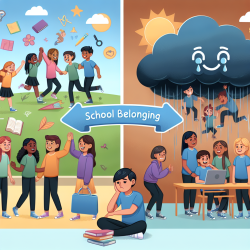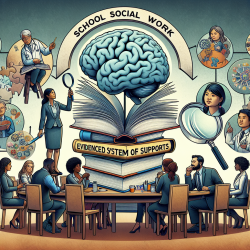Understanding Trauma and Mental Health: Lessons from Female Fish Traders in Zambia
As practitioners dedicated to improving outcomes for children, it is essential to stay informed about the latest research and its practical applications. A recent study titled “Life at the River is a Living Hell:” a qualitative study of trauma, mental health, substance use and HIV risk behavior among female fish traders from the Kafue Flatlands in Zambia, provides valuable insights that can help us enhance our approaches to trauma and mental health in children.
Key Findings from the Study
The study conducted by Michalopoulos et al. (2017) explored the co-occurring issues of trauma, mental health, substance use, and HIV risk behaviors among female fish traders in Zambia. Here are some key findings:
- Trauma Exposure: Female fish traders experienced multiple and ongoing traumatic events, including sexual violence, physical assaults, and dangerous working conditions.
- Mental Health Symptoms: The participants reported severe mental health symptoms such as anxiety, depression, PTSD, and local idioms of distress.
- Substance Use: Substance abuse was prevalent among the participants as a coping mechanism for their trauma and stress.
- HIV Risk Behaviors: There was a significant relationship between trauma and HIV sexual risk behaviors, driven by transactional sex and lack of condom use.
Implications for Practitioners
While the study focuses on female fish traders in Zambia, the findings have broader implications for practitioners working with children who have experienced trauma. Here are some ways to implement these insights:
1. Trauma-Informed Care
Understanding the pervasive impact of trauma on mental health is crucial. Implement trauma-informed care practices that recognize and respond to the signs of trauma in children. This includes creating safe environments, building trust, and providing appropriate support.
2. Comprehensive Assessments
Conduct thorough assessments that include screening for trauma exposure and mental health symptoms. Utilize both standardized tools and culturally sensitive approaches to capture the full spectrum of a child's experiences and needs.
3. Integrated Interventions
Develop integrated interventions that address the co-occurring issues of trauma, mental health, and risky behaviors. This may involve collaboration with mental health professionals, social workers, and other specialists to provide holistic support.
4. Education and Training
Educate and train staff on the impact of trauma and effective intervention strategies. This ensures that everyone involved in a child's care is equipped to provide trauma-informed support.
5. Advocacy and Policy Change
Advocate for policies that support trauma-informed practices and mental health services in schools and communities. This includes promoting access to resources and reducing stigma around mental health issues.
Encouraging Further Research
While this study provides valuable insights, it also highlights the need for further research. Practitioners are encouraged to stay informed about emerging research and contribute to the body of knowledge through their own studies and observations.
To read the original research paper, please follow this link: “Life at the River is a Living Hell:” a qualitative study of trauma, mental health, substance use and HIV risk behavior among female fish traders from the Kafue Flatlands in Zambia.










